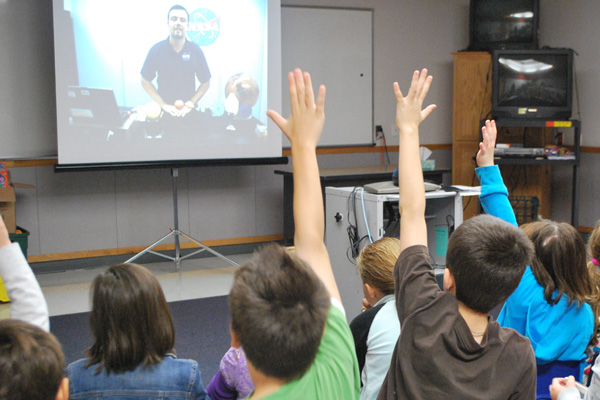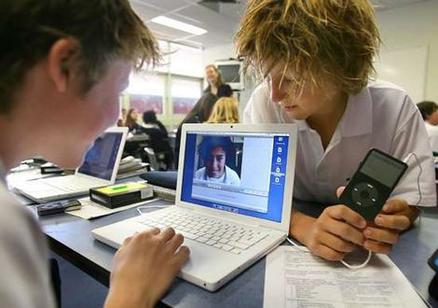Education today is in the throes of a major paradigm shift as we move forward into the 21st century. In fact, according to Dr. Douglas Kellner at UCLA, “the advent of new technologies and multimedia are causing a more dramatic revolution than the transition from an oral to a print culture.”
* Learning in the 21st century takes place any time and anywhere!
* 1:1 computing and mobile devices have swept the planet,
* Integration of technology is an absolute must in any educational system in the 21st century.
We want to ensure that the obstacles and difficulties experienced in other countries, for example, in the United States, are avoided when implementing technology integration in your district or country.
* 1:1 computing and mobile devices have swept the planet,
* Integration of technology is an absolute must in any educational system in the 21st century.
We want to ensure that the obstacles and difficulties experienced in other countries, for example, in the United States, are avoided when implementing technology integration in your district or country.
A research report published by the New Media Consortium in 2013[i] states that the biggest challenge to implementing a 1:1 computer initiative in schools is the lack of adequate, ongoing professional development for teachers who are required to integrate new technologies into their classrooms yet who are unprepared or unable to understand new technologies.
“All too often, when schools mandate the use of a specific technology, teachers are left without the tools (and often skills) to effectively integrate the new capabilities into their teaching methods,” according to the report. “The results are that the new investments are underutilized, not used at all, or used in a way that mimics an old process rather than innovating new processes that may be more engaging for students.”
The 21st Century Teacher Education Initiative provides a research-based and practitionally-proven program for ensuring that technologies are implemented fully, as a vehicle for delivering the curriculum, and not as an add-on to be used as a $1,000 pencil.
Having technologies in the hands of students does not make education 21st century. How the technology is used will determine whether the educational experience is 21st century, and will determine whether these technologies support the purpose of education, the building of character, the acquisition of knowledge, and the development of 21st century skills and the multiple literacies for the 21st century.
21st Century Schools will bring to world-class expertise in the best practices of integrating technologies into the educational experience. Our experts are the most advanced in the world in their knowledge of technology integration, from learning “in the cloud” to 1:1 initiatives, to global, collaborative classroom projects, mobile learning, the flipped classroom, and “on the ground” in the classroom, curriculum design, lesson planning and instructional strategies.
Our Technology Integration program is integrated and holistic.
Further reading: please see Anne Shaw's article, "Will the real 21st century schools please stand up?"
[i] NMC Horizon Report > 2013 K-12 Education Edition, http://www.nmc.org/pdf/2013-horizon-report-k12.pdf
“All too often, when schools mandate the use of a specific technology, teachers are left without the tools (and often skills) to effectively integrate the new capabilities into their teaching methods,” according to the report. “The results are that the new investments are underutilized, not used at all, or used in a way that mimics an old process rather than innovating new processes that may be more engaging for students.”
The 21st Century Teacher Education Initiative provides a research-based and practitionally-proven program for ensuring that technologies are implemented fully, as a vehicle for delivering the curriculum, and not as an add-on to be used as a $1,000 pencil.
Having technologies in the hands of students does not make education 21st century. How the technology is used will determine whether the educational experience is 21st century, and will determine whether these technologies support the purpose of education, the building of character, the acquisition of knowledge, and the development of 21st century skills and the multiple literacies for the 21st century.
21st Century Schools will bring to world-class expertise in the best practices of integrating technologies into the educational experience. Our experts are the most advanced in the world in their knowledge of technology integration, from learning “in the cloud” to 1:1 initiatives, to global, collaborative classroom projects, mobile learning, the flipped classroom, and “on the ground” in the classroom, curriculum design, lesson planning and instructional strategies.
Our Technology Integration program is integrated and holistic.
Further reading: please see Anne Shaw's article, "Will the real 21st century schools please stand up?"
[i] NMC Horizon Report > 2013 K-12 Education Edition, http://www.nmc.org/pdf/2013-horizon-report-k12.pdf


